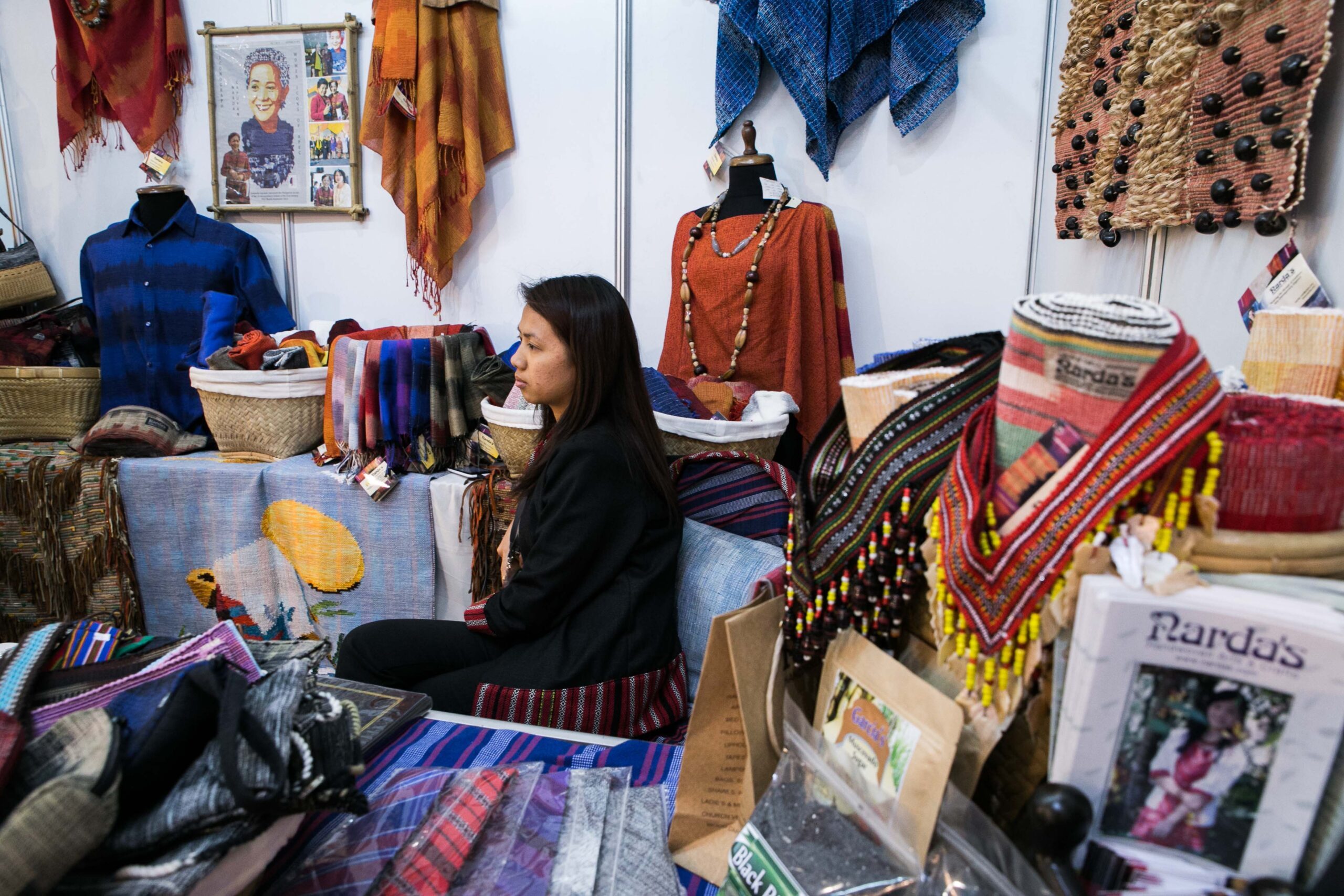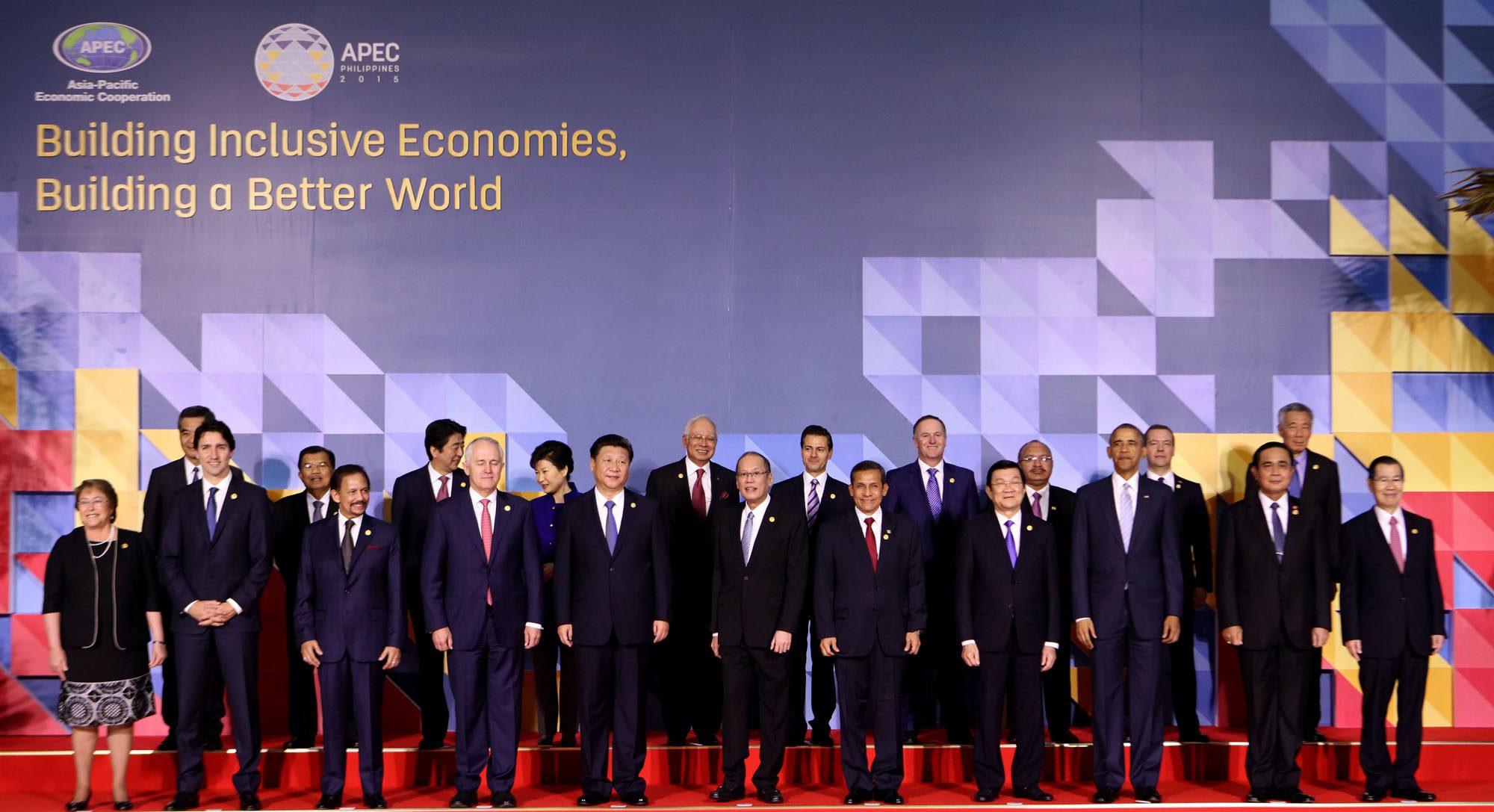SUMMARY
This is AI generated summarization, which may have errors. For context, always refer to the full article.

MANILA, Philippines – The 21 Asia-Pacific Economic Cooperation (APEC) member-economies called for more intensive efforts to help micro, small, and medium enterprises (MSMEs) penetrate global value chains.
The APEC leaders concluded their meeting in Manila on Thursday, November 19 by issuing the 23rd APEC Economic Leaders’ Meeting Declaration titled Building Inclusive Economies, Building a Better World: A Vision for an Asia-Pacific Community. (READ: Making region MSME-friendly could be APEC 2015’s success)
The APEC leaders reiterated their directives to the ministers: Implement actions laid out in the Philippine-initiated Boracay Action Agenda to Globalize MSMEs and report progress by 2020.
The Boracay action plan aims to help the MSMEs access the global market through trade facilitation, e-commerce, financing, and institutional support.
The 21 APEC leaders also welcomed the APEC Iloilo Initiative: Growing Global MSMEs for Inclusive Development, and support the creation of the APEC MSME Marketplace to provide opportunities for business and strengthen collaboration with public and private organizations that will support their development.
“Throughout the year, representatives from all member economies held 229 meetings to advance our individual economies and the region at large. During this time, we have seen our locales lend their names to strategies that will help empower small and medium enterprises, among others, ” Philippine President Benigno Aquino III told a press conference in Pasay City on Thursday, November 19.
“There is, for instance, the Boracay Action Agenda, which will help micro, small, and medium enterprises access the global and regional markets. Complementing this is the Cebu Action Plan (CAP), which will widen entrepreneurial access to financial markets. Among its other benefits will be lowering the cost of remittances,” Aquino added.
The APEC 2015 Leaders’ Declaration statement also read, “we are mindful that despite the unprecedented economic growth that has lifted millions of people out of poverty, it continues to be a reality for millions of others in our region. We call for more intensive efforts for its reduction and eradication.”
In the Philippines, the economy has been growing for an average of 6.5% for the past 5 years, but the country continues to have high unemployment and underemployment rates.
Poverty incidence among Filipinos in the first semester of 2014 was estimated at 25.8%, according to the latest data of the Philippine Statistics Authority (PSA), higher than the 24.6% recorded in the same period in 2013.

Financial inclusion
The leaders also declared financial integration that through moving toward more liberalized financial services and capital accounts, while maintaining adequate safeguards as well as increased access to finance for MSMEs and businesses in the supply chain, will foster greater trade and investment in the region.
The APEC leaders also said they recognize the importance of MSMEs’ access to finance as a key enabler of their expansion, internationalization, and productivity improvement. They also welcomed commitment made by the private sector and international finance organizations through the recently launched Financial Infrastructure Development Network under the CAP.
Resilience against disasters, financial crises, and other unexpected events were also underscored by the APEC leaders. “In addressing these challenges, we recognize the important role of public finance such as credit guarantee systems designed for MSME operational continuity and the importance of enhancing closer collaboration with relevant public and private sector institutions,” the declaration read.
Global value chain integration
Also, MSMEs – which account for about a third of the gross domestic product and represent 96% to 98% of all registered businesses – have a hard time penetrating global value chains as they continue to face financial and non-financial barriers.
“We underscore the significance of the participation of MSMEs in global commerce to inclusive growth and will take action to facilitate such participation,” the statement of 21 APEC leaders read.
“We recognize that internationally-oriented MSMEs can make substantial contributions to poverty reduction through employment creation, productivity improvements, and economies of scale,” the APEC leaders added in the statement.
In Thursday’s briefing, Aquino noted APEC’s role as incubator of next generation policy ideas and initiatives, and a mechanism for facilitating implementation across the region’s diverse member economies.
Embrace digital economy
The APEC leaders also emphasized opportunities that the Internet and digital economy can offer to achieve innovative, sustainable, inclusive, and secure growth.
“The Internet and digital economy will allow businesses, especially MSMEs, to participate in global value chains and reach a wider consumer base through new business models,” the statement read. (READ: IN PHOTOS: MSMEs showcased at APEC’s Int’l Media Center)
“With regard to MSME development, the leaders commit to continue to promote cross-border privacy, and to protect consumer interests.
They also instructed their ministers to advance the work to facilitate the Internet and digital economy.
“We instruct officials to implement the Work Plan for Facilitating Digital Trade for Inclusive Growth as a Potential Next Generation Trade and Investment Issue,” the APEC leaders said. – Rappler.com
Add a comment
How does this make you feel?
There are no comments yet. Add your comment to start the conversation.